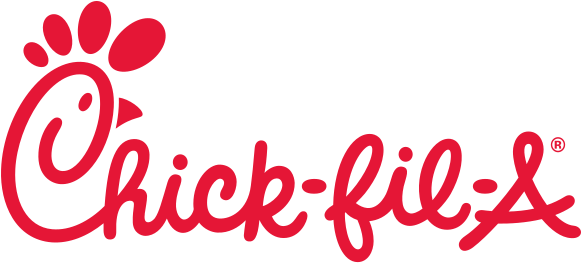There is no mistaking that Chick‑fil‑A is a Christian brand. Every one of its locations is closed on Sunday, honoring the Sabbath and giving a day of rest. I am frequently reminded of this fact on Sunday afternoons, leaving church around noon, and asking my family, “So, where do you want to have lunch?” If I had a nickel for every time my kids said “Chick‑fil‑A” then realized a microsecond later that it was Sunday and the restaurant was closed, I could cater a nice meal from there for my extended family.
Chick‑fil‑A wears its Christian brand very evidently, even to the point of creating crisis‑communications problems for itself. The controversy around anti-gay-marriage comments made by its founder Truett Cathy’s and later his son, Dan Cathy, offer a very interesting case study on how a multi-billion-dollar company handled widespread media and public antagonism against its brand.
Headquartered in Atlanta, Georgia, Chick-fil-A is a quick-service restaurant with locations across the United States and is popular for its “Original Chicken Sandwich.” The chain has approximately 1,000 stand-alone locations throughout the country. Original owner Truett Cathy was a devout Christian and instituted a policy whereby all the Chick-fil-A restaurants closed on Sunday in respect to the Sabbath. The company is known for having respectable and polite employee workmanship. That aspect of the brand started in 1973 when Truett Cathy established a “Team Member Scholarship Program,” where he encouraged Chick-fil-A employees to strive for greatness and continue their education into college.
In 1994, Chick-fil-A became the sponsor of the Peach Bowl, the annual NCAA college football game hosted in Atlanta and, in 2006, the game changed its name to the Chick-fil-A Bowl.
Chick-fil-A was the focal point of controversy when President and Chief Operating Officer, Dan Cathy made a series of public remarks opposing same-sex marriage. On June 16, 2012, Dan Cathy made anti-gay marriage statements on the nationally syndicated radio show The Ken Coleman Show. He stated, “I think we are inviting God’s judgment on our nation when we shake our fist at Him and say, ‘We know better than you as to what constitutes a marriage.’ I pray God’s mercy on our generation that has such a prideful, arrogant attitude to think that we have the audacity to define what marriage is about.”
These statements caused a media outrage across the nation as advocates of gay marriage condemned Cathy’s comments as hate rhetoric.
Chick-fil-A did not address the comments or the very open public debate until July 2 when Cathy did an interview with the Biblical Reporter. There, he stated, “We are very much supportive of the family — the biblical definition of the family unit. We are a family-owned business, a family‑led business, and we are married to our first wives. We give God thanks for that … We want to do anything we possibly can to strengthen families. We are very much committed to that,” Cathy then doubled-down on his stance. “We intend to stay the course,” he said. “We know that it might not be popular with everyone, but thank the Lord, we live in a country where we can share our values and operate on biblical principles.”
As you can imagine, his interview with the Biblical Reporter only set fuel to the fire and reignited a news cycle on the issue that had mostly died down. Organizations on both sides of the issue rallied their members for pro and con protests. Anti-gay marriage supporters lined up to purchase food from the chain, while gay marriage supporters protested in front of restaurants.
The mayor of Boston at the time, Thomas Menino stated that he would not allow any Chick‑fil-A restaurants into his city unless the company changed its “policies.” Chicago’s mayor at the time, Rahm Emanuel, supported Menino by stating, “Chick-fil-A’s values are not Chicago values.” San Francisco soon followed Boston and Chicago’s stance when its then-Mayor Edwin Lee tweeted anti‑Chick-fil-A remarks.
In the wake of these controversial comments and condemnation from mayors in three of the largest markets in the U.S., how do you think Chick-fil-A’s business fared? Poorly, right? Wrong.
After Cathy’s remarks, business skyrocketed. In October 2012, the company enjoyed record sales and high brand recognition. Restaurant sales rose 2.2 percent in the third quarter of that year. The market share rose 0.6 percent and awareness of the company’s advertising rose 6.5 percent.
A large part of this success was a Chick-fil-A Appreciation Day on August 1 that was orchestrated by then-Arkansas Governor and U.S. Presidential Candidate Mike Huckabee to drive anti-gay-marriage patrons to the restaurant to demonstrate their support on the issue. That single day’s sales outpaced any other single day’s sales at that time by 29.9 percent.
How was public sentiment at the time? USA Today surveyed people’s feelings towards Chick-fil-A being anti-gay-marriage: 53 percent of respondents said that they would boycott the restaurant chain, 43 percent said that they would support the company, and 5 percent were undecided.
Adding another dimension to the issue, a Pew Research study from 2014 indicated that 70 percent of polled American adults identified themselves as Christian. That number was down from 86 percent in 1990 and lower than 81.6 percent in 2001. The United States has the largest Christian population in the world, with nearly 280 million people.
You do the math. If a distinct part of branding is understanding and appealing to your target audiences, adopting a highly visible anti-gay-marriage stance then enduring weeks of public condemnation for it goes a long way toward codifying your support among much of the Christian population.
Thinking about business pragmatics, the attention to the brand that the firestorm of media scrutiny created helped business. Let me explain. Chick-fil-A competes with other international quick-service-restaurant brands, such as McDonald’s, Burger King, Wendy’s, and Jack In The Box. All of these brands spend hundreds of millions of dollars in advertising, public relations, digital and social media, event sponsorship, and much more to promote their respective brands. Whether deliberate or not, Dan Cathy sparking a debate that raged on an international news cycle for weeks was the type of promotion that money simply cannot buy. By enabling the U.S. “media machine” to spread the “message” for him and the company, Cathy and Chick-fil-A realized a marketing multiplier effect that did wonders for solidifying the brand’s base and driving them to the restaurants to increase sales.
Bringing this case study back to branding though, when you combine the no-work-on-Sunday policy with the anti-gay-marriage beliefs, ultra-friendly customer service when you walk into a Chick-fil-A restaurant and engage with the staff, and the company’s political contributions to anti-same-sex advocacy organizations, a very clear picture of a devout Christian brand takes shape, whether you like the company’s belief system or not.]
Interestingly, in mid-November 2019, the company announced that it would cease making donations to two Christian organizations that had taken controversial anti-LGBTQ stands on homosexuality and same-sex marriage. One of the two organizations was Salvation Army. In a statement, Chick-fil-A said it will work exclusively with organizations that focus on education, homelessness and hunger. The same statement included, “No organization will be excluded from future consideration — faith-based or non‑faith‑based.” While the quote leaves open the possibility that the company may donate to organizations with anti‑LGBTQ views in the future, the change in its giving clearly signals the company’s loosening of its strong religious position. At the time of the announcement, the Gay and Lesbian Alliance Against Defamation (GLAAD) commended Chick‑fil-A for its decision to stop donations to the two Christian nonprofit organizations, stating that it “greet[ed] today’s announcement with cautious optimism.” GLAAD also noted that Chick‑fil-A has more work to do to fix its poor image with the LGBTQ community.
As you can imagine, the withdrawal of funding to the Salvation Army was sharply criticized by conservatives who accused the company of caving to progressive pressure. U.S. Representative Dan Crenshaw (R., Texas) wrote in a tweet, “Congrats to the wokescolds who finally bullied Chick‑Fil-A into stopping donations to the Salvation Army and their ‘bigoted’ history of helping the poor and helpless. Real big accomplishment for the progressives. Hope you’re happy.”
Time will tell how Chick-Fil-A will handle future donations and public stances surrounding its LGBTQ views. Time also will tell whether conservative Christian consumers will change their buying patterns with the restaurant chain due to the brand’s shift in policy.

